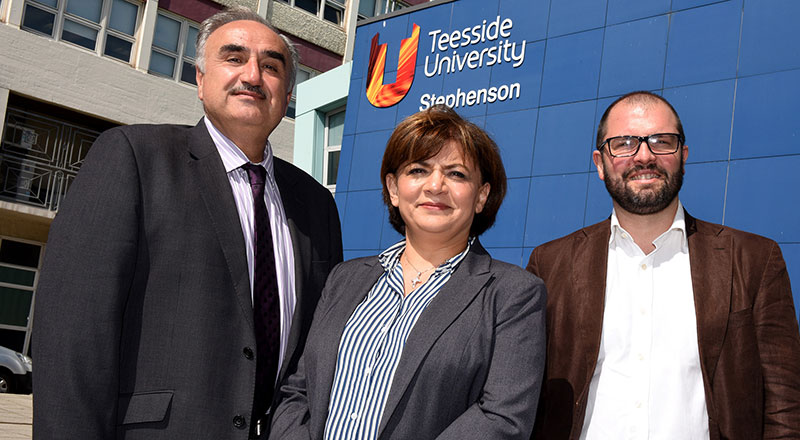Project to empower businesses to increase energy savings
Innovative research by a Teesside University team will help businesses to increase their energy efficiency.

The SMEmPower Efficiency EU H2020 research project, which is working with businesses across Europe, aims to empower small and medium-sized enterprises (SMEs) to reduce their energy consumption.
Effective tools for energy optimisation, processes and use of new technologies will be developed, including an advanced training handbook in seven languages and an online platform for energy analytics.
The project has an element of education and training, with around 800 members of SME staff at all levels trained to recognise and implement energy efficiency measures in the EU.
The three-year project will involve employees at all levels, from trainees to top-level decision makers within the SMEs to encourage introduction and implementation of energy saving policies and ensure cost-effective measures are taken.
Decision makers and the stakeholders able to finance energy projects will be brought together to bridge the gap between energy audits and financing.
The project will bring significant and validated energy savings for SMEs
Professor Nashwan Dawood, of Teesside University’s School of Science, Engineering & Design, said: 'The project will bring significant and validated energy savings for SMEs.
'We believe that our approach can bring significant energy savings, particularly paying attention to the financial and technical data required for each energy saving measure.'
Professor Dawood, who is leading the research, will be working with Dr Huda Dawood and Dr Sergio Rodriguez, also from the University’s School of Science, Engineering & Design, in collaboration with European companies and research institutions. The Teesside University research team will be receive 250,000 Euro as part of the three-year two million Euro project.
 Teesside University academics join prestigious network of
...
Teesside University academics join prestigious network of
...